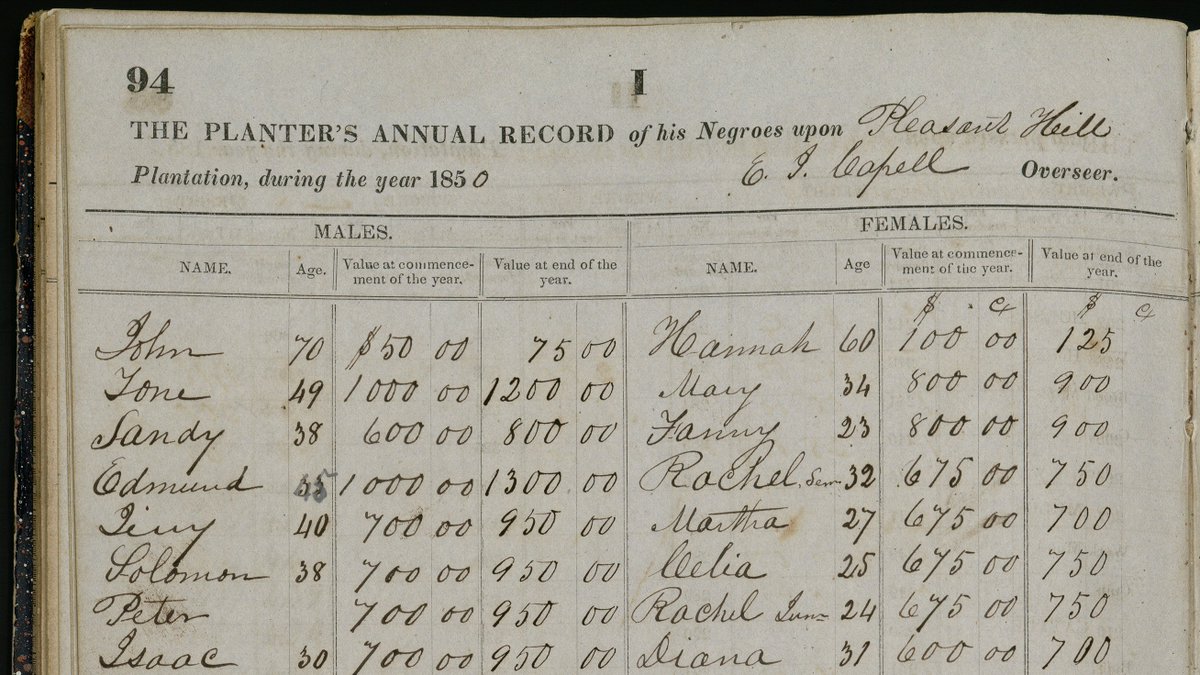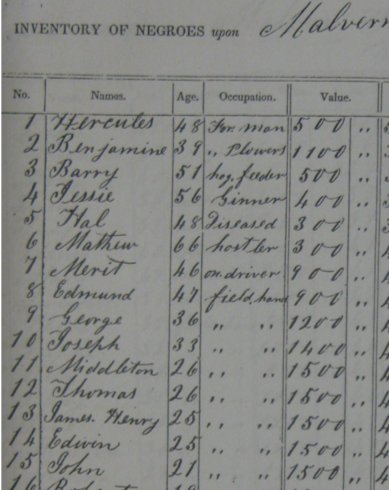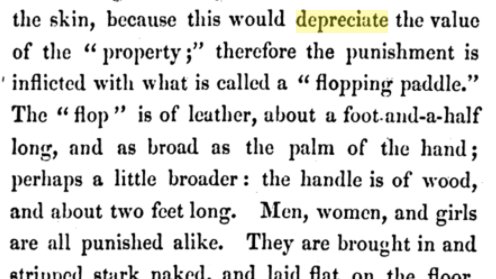If the question is about etymology, neither Adam Smith nor any of the enslavers I have studied regularly used the phrase "human capital" (I won& #39;t say never, but I haven& #39;t seen it. But if we& #39;re talking about management concepts, slaveholders absolutely evaluated "human capital." https://twitter.com/Noahpinion/status/1265418265381101569">https://twitter.com/Noahpinio...
You can find out more about this in the chapter of my book titled "human capital" (Accounting for Slavery, HUP 2018). There you will find slaveholders "appreciating" their human capital for skill, fertility, lactation, and more. They used inventories of lives like this one.
And this one, which includes age and occupation... Valuations priced people based on a combination of life expectancy and health as well as what we call human capital today (skill, habit, training).
Enslavers also "depreciated" people for illness, old age, and for attempting to escape. Slave traders used special whips which would not leave a mark because they knew scars would depreciate their capital. See this passage from John Brown& #39;s narrative, Slave Life in Georgia, 1855.
There are many more examples like these. They show people being priced immediately alongside livestock--as if they were not human. But they also show planters profiting from their humanity--putting a price on emotional labor and intelligence.

 Read on Twitter
Read on Twitter




